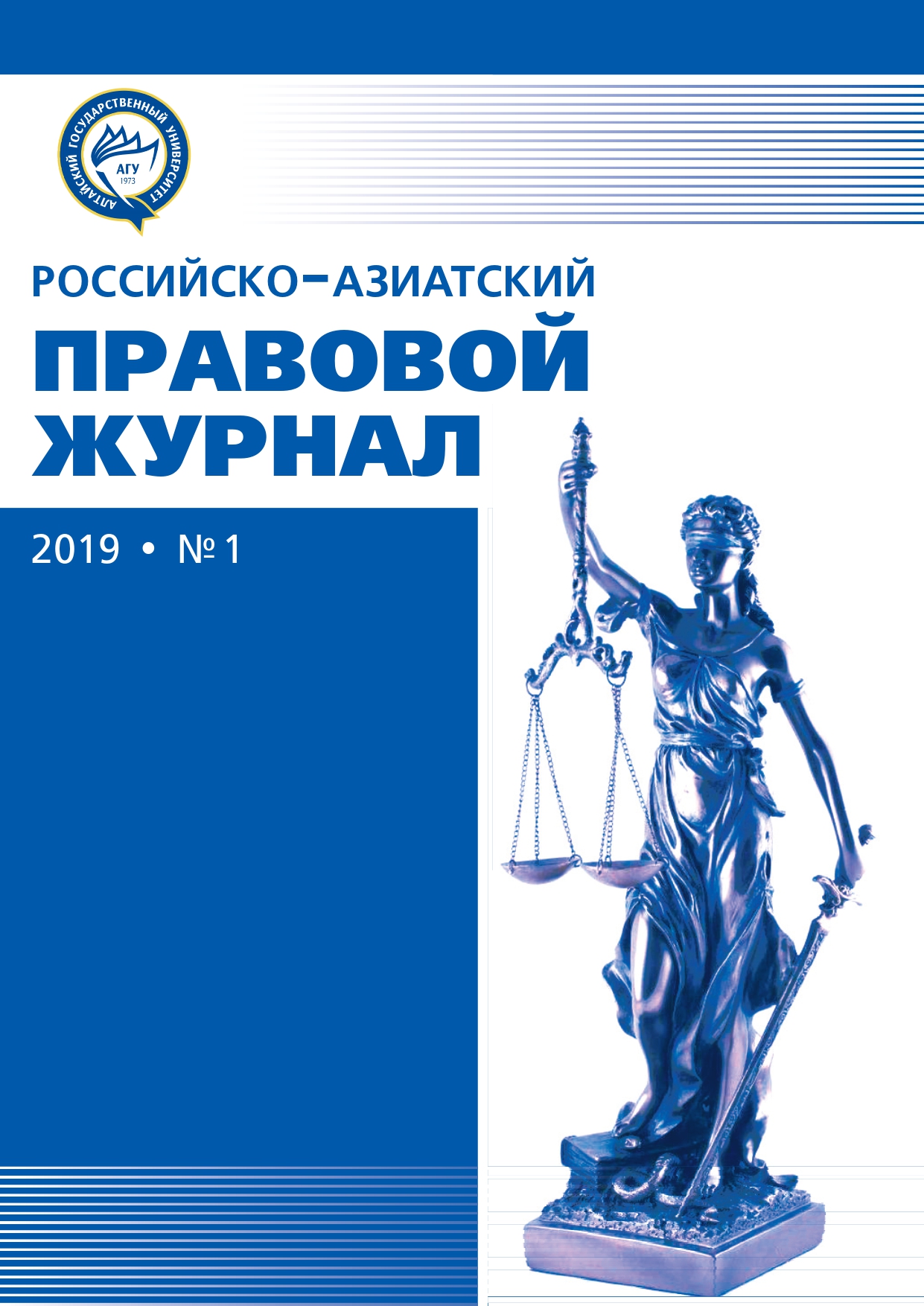PROBLEMS OF DETERMINING SUFFICIENT GROUNDS FOR LIMITING THE RIGHTS OF A MINOR TO INDEPENDENTLY MANAGE HIS INCOME
УДК 347.155 ББК 67.4
Abstract
Minors from fourteen to eighteen years of age, who have incomplete civil capacity, may be limited ordeprived of the right to independently manage their scholarship, salary or other income. The reason forthis is the circumstances, testifying to the clearly unreasonable disposal of minors of their income. That is,such a disposition of minor incomes results, which is the harm to their physical, mental health and moraldevelopment. Behavior should be open, obvious to all. The assessment of the lifestyle of a minor is made bythe court on the basis of his interests. The circumstances established by the court, testifying to the clearlyunreasonable disposition of income, serve as a sufficient basis (legal fact) for restricting or depriving a minorof the right to independently make administrative transactions of a property nature. This restriction maybe applied within the prescribed period by the court, until it is canceled or the juvenile’s full legal capacity.The sanction norm is aimed not so much at punishing a minor as of having an educational effect on him andensuring the protection of his property and personal rights and interests.
Downloads
References
Амандыкова С.К., Воронина С.В. Материально-процессуальный аспект ограничения неполной дееспособности несовершеннолетних по законодательству России и Казахстана // Известия Алтай- ского гос. ун-та. 2018. No3 (101). С. 125–129.
Судебные и нормативные акты РФ (СудАкт) [Электронный ресурс]. URL: http: //sudact.ru/
regular/doc/wcDGTfoydnZW/
Михайлова И.А. Некоторые аспекты дееспособности несовершеннолетних в возрасте от четырнадцати до восемнадцати лет // Нотариус. 2006. No4. С. 7–9.
Капитова О.В. Правовая природа алиментирования в семейном праве Российской Федерации. М., 2010.
Тархов В.А. Гражданское правоотношение : монография. Уфа, 1997. 124 с.
Бюллетень Верховного Суда РФ. 2015. No8.
Russian-Asian Law Journal is a golden publisher, as we allow self-archiving, but most importantly we are fully transparent about your rights.
Authors may present and discuss their findings ahead of publication: at scientific conferences, on preprint servers, in public databases, and in blogs, wikis, tweets, and other informal communication channels.
Russian-Asian Law Journal allows authors to deposit manuscripts (currently under review or those for intended submission) in non-commercial, pre-print servers such as ArXiv.
Authors who publish with this journal agree to the following terms:
- Authors retain copyright and grant the journal right of first publication with the work simultaneously licensed under a Creative Commons Attribution License that allows others to share the work with an acknowledgement of the work's authorship and initial publication in this journal.
- Authors are able to enter into separate, additional contractual arrangements for the non-exclusive distribution of the journal's published version of the work (e.g., post it to an institutional repository or publish it in a book), with an acknowledgement of its initial publication in this journal.
- Authors are permitted and encouraged to post their work online (e.g., in institutional repositories or on their website) prior to and during the submission process, as it can lead to productive exchanges, as well as earlier and greater citation of published work (See The Effect of Open Access).








